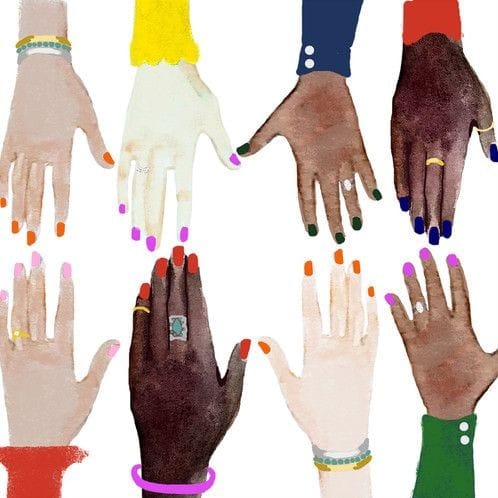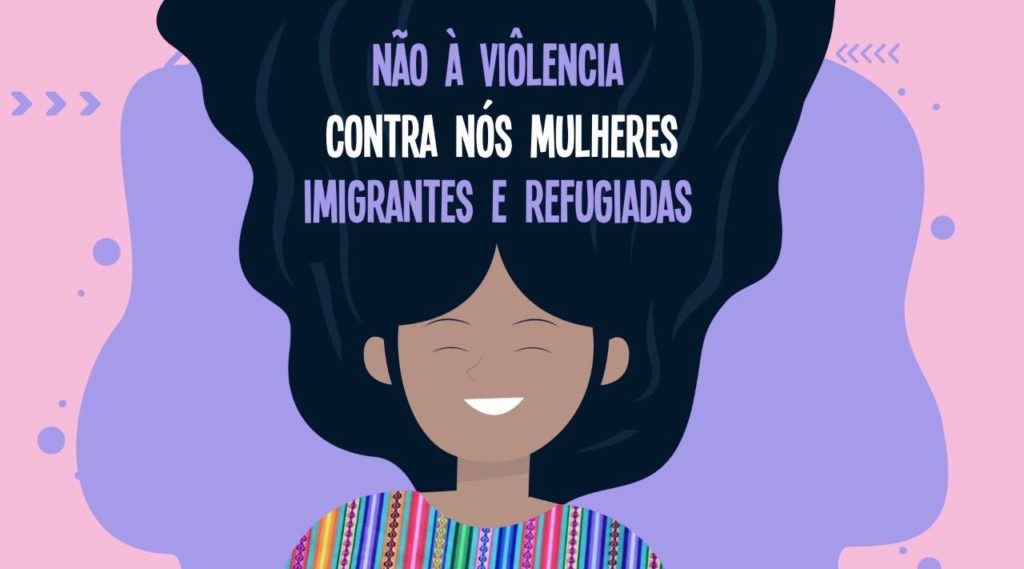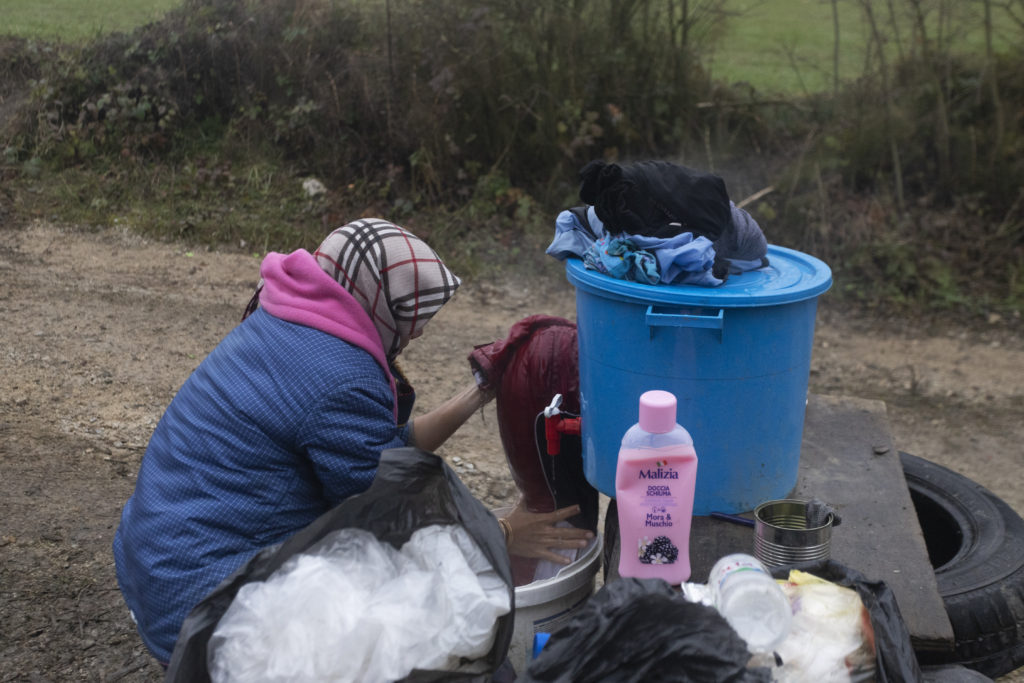The case of Claudia Simões illustrates the deep connection between racism and impunity, proving justice isn’t colour-blind. Black women are caught at the intersection of gender and race, facing police dehumanisation. but this mother is determined in her fight for accountability.
by Jamila Pereira
Trigger Warning ⚠️: Police brutality and assault
Throughout the last few years, our eyes and minds have become susceptible to witnessing police violence across social media and beyond, especially since the pandemic. Even though police violence is often portrayed in the media as an issue solely targeting men and boys, the reality is that this injustice and violation of human rights is non-binary.
Police violence can fluctuate amongst groups and perpetuate itself through different scenarios, from the Black girl being stripped and searched while on her period, to the two deceased sisters who had their photos taken and shared, snippets and stories of violence against women, particularly Black women, have been normalised, yet invisible to public discourse.
Since these stories aren’t often registered for the wider public, the invisibility cloak around Black female victims of police violence extends itself across political and social spheres right in front of our eyes. Despite names such as George Floyd, Eric Garner, Tamir Rice and Michael Brown rightfully resonating with us, names like Sandra Bland, Breonna Taylor, Sarah Reed, Aiyana Stanley-Jones or Kamyimsola Olatunjoye aren’t often recognised or brought up when we’re debating the repercussions of police brutality.
Despite rising through racial trauma, we still find ourselves unconsciously analysing violence through a men-centred lens, making the atrocious experiences of Black women and girls easily forgotten or dismissible.
Inherently, we should then ask ourselves why Black women and girls fall into the category of most vulnerable amongst all women to governmental violence but simultaneously the least advocated for. The factors leading to this erasure recount years of conceptual and social failings as well as the inherent disposability label attached to Black female bodies within a racist, patriarchal and misogynist society.
Thus, even if we find ourselves in the shoes of advocates of racial justice, the truth is that the intersection between gendered and racialised violence doesn’t fit the narrative or the prevailing frame of reference. Despite rising through racial trauma, we still find ourselves unconsciously analysing violence through a men-centred lens, making the atrocious experiences of Black women and girls easily forgotten or dismissible.
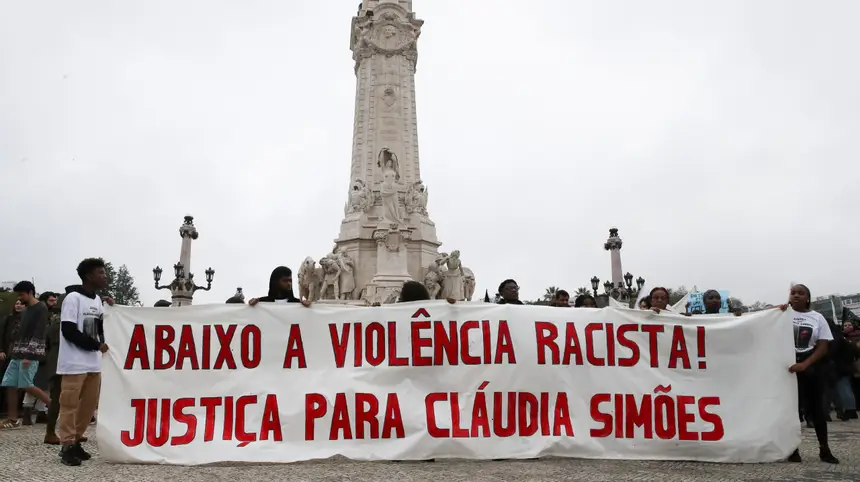
Nonetheless, although there are many other reasons, one that sits right across the table is the devaluation of Black women’s lives. This factor itself goes beyond invisibility and reaches a level of colour blindness designed to conspire in the regularisation of an unspoken epidemic: the denial of bodily integrity for Black women and the policing and violence against their bodies as a historic mark in our lives.
Now, the real question lies in: When these incidents are witnessed, why don’t they become urgent issues? Why aren’t we compelled to advocate for our women, too? One harrowing example is the case of Cláudia Simões.
Cláudia Simões: Battling Injustice, Racism, and Trauma After a Brutal Assault by Police
In January 2020, in Lisbon, Portugal, Cláudia Simões, a working-class Black woman from Angola and a mother, was brutally assaulted by governmental officials. The main perpetrator and assailant is the PSP (Public Security Police) officer, Carlos Canha. The incident occurred after Cláudia’s daughter forgot her bus pass at home and quickly escalated to a horror scene where Cláudia found herself fighting for her life. Cláudia was lynched in front of her then-eight-year-old daughter and many others and then forced into a police van, where she sustained additional aggressions, both physical and verbal.
Fast forward four traumatic years as she chased justice with her claws and teeth, justice wasn’t colour-blind. Despite extensive evidence of excessive force, including visible wounds and a viral video depicting the officer’s savage behaviour, the Portuguese justice system criminalised Cláudia instead and legitimised the officer’s egregious behaviour. Following further scrutiny, mockery and humiliation by the Portuguese judicial system, the court condemned not only Carlos Canha, with three years of suspended sentencing, but also Cláudia Simões, to eight months.
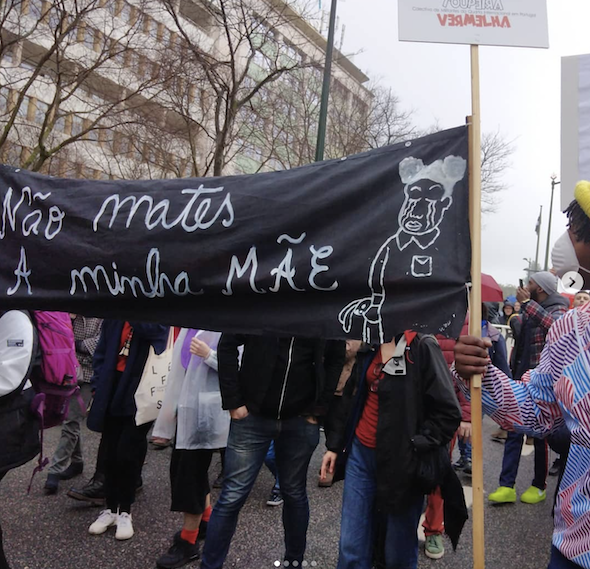
The Sintra Court convicted Cláudia Simões of biting a PSP officer, a countermeasure she used to defend herself. Cláudia Simões was charged with an offence against qualified integrity. Ironically, Carlos Canha was acquitted of the assault and kidnapping charges related to Cláudia Simões but was convicted on the other two assault and kidnapping charges, as well as being found guilty of aggravated insult and abuse of power. His fellow officers, João Gouveia and Fernando Rodrigues, were charged with abuse of power for failing to intervene in their colleague’s alleged assaults.
Migrant Women Press had the opportunity to speak to Cláudia through a trauma-informed approach and give her a space to openly share her story beyond Portuguese borders – a reality seemingly foreign to her since this scarring journey started.
Cláudia Simões has been navigating a complex recovery process after the traumatic incident. When asked about her current state and journey of healing, Cláudia expresses deep-seated anger and distress. “I am very angry; both I and my children, especially my 12-year-old daughter who was present during the incident when she was only 8,” Cláudia shares. The trauma has profoundly affected her daughter, leading to severe emotional turmoil, including suicidal ideation. The young girl feels responsible for the incident, which has engulfed her in a cycle of self-blame and self-harm attempts.
I’ve decided I’m fighting until the end.
The assault has had far-reaching consequences on Cláudia’s personal and family life, too. “Following the incident, I had to leave my job,” Cláudia explains. The impact on her employment has been devastating, as potential employers close their doors upon seeing her name. “It’s been so chaotic that I’m considering leaving the country as soon as the case is sorted and dealt with,” she adds, emphasising the financial and emotional toll. Currently, Cláudia relies on local grassroots institutions and community support to make ends meet, with a GoFundMe campaign being a critical lifeline for her legal battle. “My biggest concern is gathering the funds so that I can appeal,” she says, underscoring the ongoing struggle to secure justice.
Reflecting on the community’s response, Cláudia notes a mixed experience. Initially, she felt a lack of support from the Angolan community in Lisbon. “I now see more involvement and support,” she acknowledges, attributing the initial hesitation to a lack of understanding of the gravity of her situation. Despite this, Cláudia received unwavering support from various communities, including Bissau-Guineans, Cape Verdeans, Brazilians, and even some Portuguese individuals. She expresses deep gratitude for the solidarity shown by key figures who have stood by her throughout her journey.
When discussing the broader implications of her experience, Cláudia is candid about the systemic issues of institutional racism and police violence in Portugal. “If they can stand in front of me and tell me that racism doesn’t exist here, what can I do?” she questions, highlighting the pervasive denial and fear that hinder accountability as well as the appalling treatment of judicial officials towards her throughout this process. “My daughter often remarks that if they decided to claim that racism does exist, I probably wouldn’t be alive.”. The assault and subsequent legal battle have instilled a profound fear in Cláudia, but they have also fueled her determination to fight for justice. “I’ve decided I’m fighting until the end,” she declares, despite her mother’s constant fears for her safety.
Cláudia’s resilience is evident as she recounts the harrowing details of the assault and the ongoing trauma that haunts her. “I hope that people are strong enough to cope with all of what we’ve been dealt with because this racist system is here to ensure that fear is normalised in our communities. You’ll see people with broken noses, severe injuries and fractures, but they can’t face the police or complain because the justice system is against them.”, she mentions sadly. “The fear consumes people to the point that complaining isn’t an option. The officer who assaulted me dared to claim several times that the case wouldn’t take me anywhere and that it was all a waste of time because I was simply A Black woman.”.
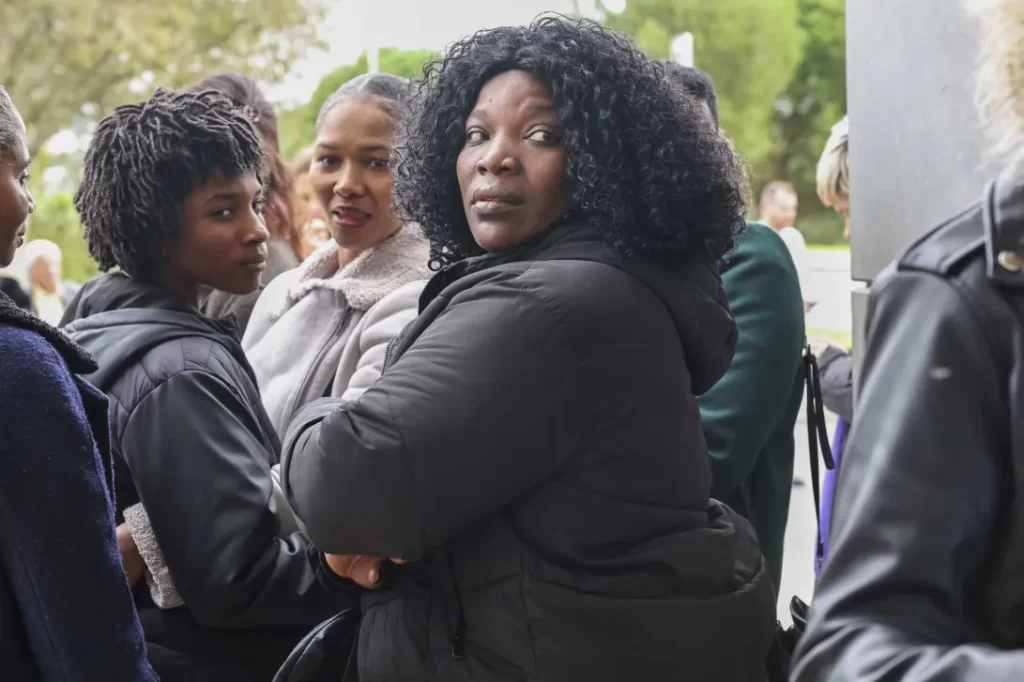
“This process has scared me a lot, but it was also an incentive for me to press charges. I had to stop and think to myself: “I lay here, in pain. What if I die?”. They argued that my injuries resulted from a fall. Yet, the sad part here is that, if I died, I’m sure the narrative wouldn’t have changed because I’m simply A Black woman.”
A Testament to Resilience Amidst Racism, Media Misinformation, and Systemic Injustice
The role of the media has been another source of distress for Cláudia. “There’s little to no space for my story,” she laments, pointing out the misinformation and victim-blaming that have overshadowed her narrative. “People have felt free to say whatever they want without any consequences. Lies such as I fought with the police officer and refused to pay for the bus ticket when, in reality, God knows there are several lies afloat. Every time we talk about that moment, my daughter starts crying instantly because she’s unsure how misinformation spread like wildfire.”. Cláudia and her daughter have had to cope with mental health challenges exacerbated by the public’s misconceptions and the hateful messages they continue to receive. “The truth will prevail,” she insists, despite the relentless onslaught of negativity.
Racism can no longer propagate like that and at our expense.
Finally, Cláudia shares a powerful message for others facing similar situations of racism and violence. She emphasizes the necessity of resilience and the importance of not giving up. “Racism can no longer propagate like that and at our expense,” she states firmly. Cláudia underscores the need for systemic change and solidarity, urging others to hold on tight and continue the fight for justice.
So, what can we learn from Cláudia’s story? Black bodies, especially those of Black women, are often denied humanity and dignity. Racism and impunity are intertwined, with codes of conduct shielding unaccountable officers rather than protecting the public. Systemic racism and white supremacy underpin governmental structures, and the police frequently exacerbate violence. Justice is not blind; it sees colour. Through a study by the European Union Agency for Fundamental Rights (FRA), Cláudia Simões’ case underscores the reality that systemic racism and police violence in Portugal isn’t an isolated incident but part of a broader pattern of discrimination.
With 27% of people of African descent in Portugal experiencing racial harassment in the last five years, how do we expect marginalised groups to live a dignified life?
Moreover, to create a meaningful change, we ought to have a bigger understanding of how social injustice affects racialised groups. Through an intersectional and decolonial lens, it’d be easier to define and point out the challenging experiences we often overlook or simply don’t see but should be addressed by the law. Improving the wellbeing of our communities and the lives of our women and girls includes confronting the vulnerabilities they face.
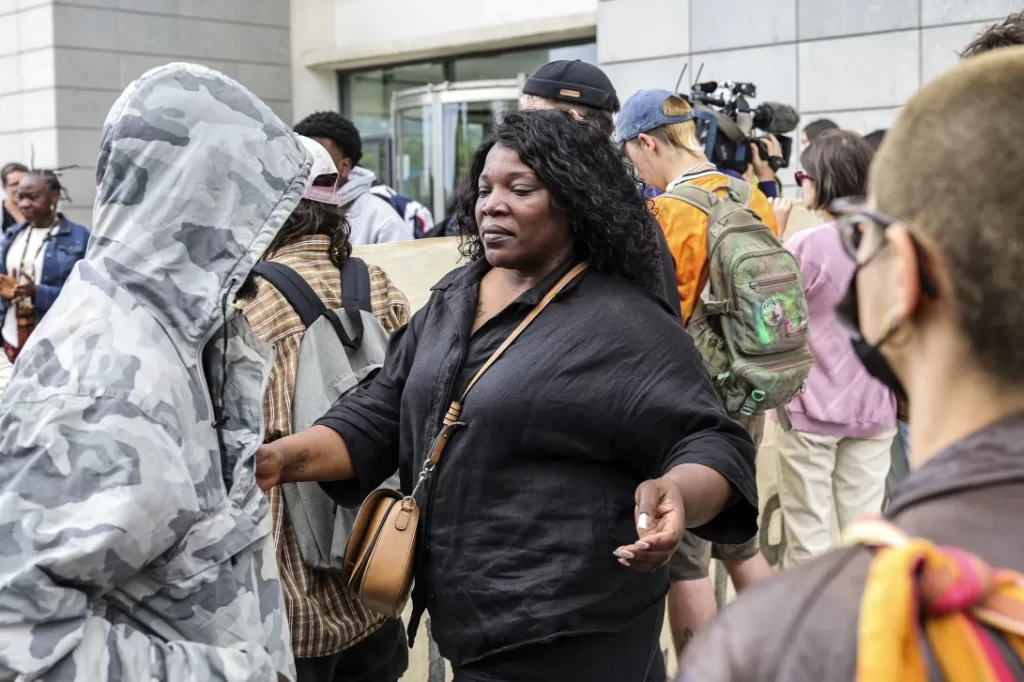
Further overlooking the experiences of marginalised women entails a tragic misjudgement of how vulnerabilities interact with one another and hinder one’s life. Consequently, even if one were to focus solely on improving conditions for Black boys, it would be impossible to ignore the economic circumstances of their mothers. In many cases, Black children rely heavily on their mothers for financial support and overall well-being, with a significant number being raised in single-mother households. Despite this, Black women face more economic challenges than any other demographic. Therefore, targeted efforts addressing both race and gender disparities are essential to uplift Black women, which in turn will benefit Black families and communities as a whole.
Cláudia Simões’ story is a testament to the resilience of the human spirit in the face of profound injustice. Her experiences highlight the urgent need for systemic change to combat racism and police violence, and her journey offers a powerful voice of support and empowerment for others facing similar battles. Through this narrative, we hope to create a safe and respectful space for Cláudia to share her story, shedding light on critical issues of racism and social justice.
Cláudia Simões is raising funds for her appeal. You can support her by donating to her GoFundMe campaign.
Featured image by Daniel Rocha
Jamila Pereira is a Bissau-Guinean journalist, poet and International Relations graduate based in Leeds. Jamila's work can be avidly found both in Portuguese and English through platforms such as Black Ballad, The Republic, BANTUMEN, and more, where she explores cultural shifts and politics of the identity of Black women in the diaspora and beyond. She is also a specialist on migration and GBV, a shortlisted member of the Top 20 Merky Books Writer’s Camp 2019 and a co-author of three anti-racist and political anthologies published by Brazilian publisher Editora Urutau.

